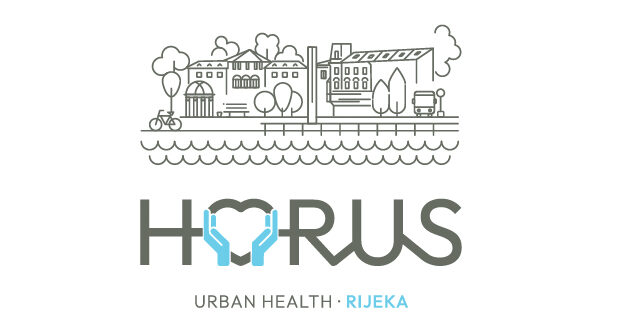

HORUS - croatian website
We are pleased to announce the launch of our enhanced project homepage focused on public health, now completely available in the Croatian language. At Horus and Faculty of Medicine Rijeka – MEDRI, we acknowledge the significance of actively involving local communities, and this new platform is specifically created to facilitate direct access to our work for city of Rijeka citizens.
This webpage provides extensive details on our current activities, most recent advancements, and objectives. We address a broad spectrum of public health subjects, encompassing urban health and community well-being, and offer valuable perspectives on our collaborative efforts to enhance health objectives. Whether you are a public health practitioner, a member of the community, or an individual seeking to enrich your knowledge, our website provides invaluable information and prospects for collaboration. We cordially encourage you to peruse the website, remain well-informed about our endeavors, and actively participate in our endeavor to promote public health.
*****
Poštovani, sa zadovoljstvom najavljujemo naše unaprijeđene stranice projekta usmjerenog na javno zdravstvo, u potpunosti dostupne na hrvatskom jeziku. Unutar projekta Horus i Medicinskog fakulteta u Rijeci – MEDRI, prepoznajemo važnost aktivnog uključivanja lokalnih zajednica, a ova nova platforma posebno je stvorena s ciljem kako bi građanima Rijeke omogućila izravan pristup našem radu.
Na stranicama možete pronaći i informirati se detaljnije o našim trenutnim aktivnostima, postignutim rezultatima ali i planiranim ciljevima. Obrađen je širok spektar tema vezanih uz područje javnog zdravstva, uključujući urbano zdravlje i dobrobit zajednice a sve u svrhu zajedničkih napora za poboljšanje zdravstvenih ciljeva. Bilo da ste stručnjak za javno zdravstvo, član zajednice ili pojedinac koji želi obogatiti svoje znanje, naše web stranice nude informacije ali i mogućnosti za suradnju. Srdačno vas pozivamo da pregledate stranice, ostanete informirani o našim aktivnostima u nastojanju za unapređenje javnog zdravstva.
Rijeka Pilot study - by MEDRI
MEDRI team from Department of Social Medicine and Epidemilogy, Faculty of Medicine, University of Rijeka, Croatia is WP4 (Pilots) leader where three European countries are organising pilot studies (Spain-Valencia, Croatia-Rijeka and The Netherlands-Rotterdam).
WP4 pursues the following specific objectives:
- O.4. To implement interventions focused on empowering citizens, especially among those vulnerable or socially disadvantaged, to improve their relationship with the urban environment in such a way that behaviours decreasing the risk of Non-Communicable Diseases (NCDs) are adopted.
- O.5. To promote the use of the urban environment by citizens through behavioural change interventions.
The study in the pilot sites will be carried out in two phases: Pilot preparation (M14-M20) and Intervention phase (M20-M29), but following the requirements of the WP2 it is necessary prior to detect the association between urban environment features and NCDs; find out causal links between urban environment and vurnerable populations lifestyle in particular NCD risk behaviour; estimate the impact of specific interventions modifying the urban physical environment on each selected NCD.
- In the period M1-M4, communication activities started to achieve enough visibility, public support, engagement of the citizens, to spread general info related to the project fields to raise awarness positioning the project brand targeting researchers, health care professionals, experts, as well as civil society organizations.
Collecting microdata from Public sources and Urban Health entities started, and an online anonymous questionnaire on Urban Health behaviours has been created and distributed with the Invitation letter to the citizens in Rijeka. The questionnaire is aimed at the general adult population (18+) living in the city of Rijeka, with the primary goal of collecting data on health, risk behaviours for the development of NCDs and usage of green spaces. Except from general population communication campaign is focused on professional and scientific target groups, media etc., drawing attention towards HORUS project (eg. Press conference, March 20th,2024, Press release-Regional news paper, TV interview).
Pilot study includes:
- Behaviour change interventions framed within the Socioecological Model (micro-, meso-, macro-system) and supported by Motivational Interviewing (tool that facilitates the processes for progress and behaviour change as a supportive therapeutic approach) and ICTs (Wakamola App including Chatbot– a conversational platform interacting with users through a chat interface, co-created and enriched with socio-demographic, clinical, eating habits, physical activity and environmental variables to monitor communities’ lifestyle in terms of nutrition, physical activity, personal conditions along with the monitoring of the quality of life through Mobile Sensors and Integrated questionnaires).
- Focus groups (by pilot): 6 (8-10 participants); Interviews: 30. Development of a new module of the Healthy Cities Generator-Citizens Module.
- Target group (by pilot): 300 participants (150 intervention and 150 control participants), gender balance. Including pilot citizens, adult population (18+) from vulnerable communities, participants with diabetes or cardiovascular disease (CVD).
- Ethical approval, Informed consent
The pilot intervention as part of the pilot studies will focus on a multi-stage approach to behaviour change. The main objective during the intervention phase is to empower citizens in their autonomy and control over their health in the urban built environment and to highlight the importance of behaviour change.


